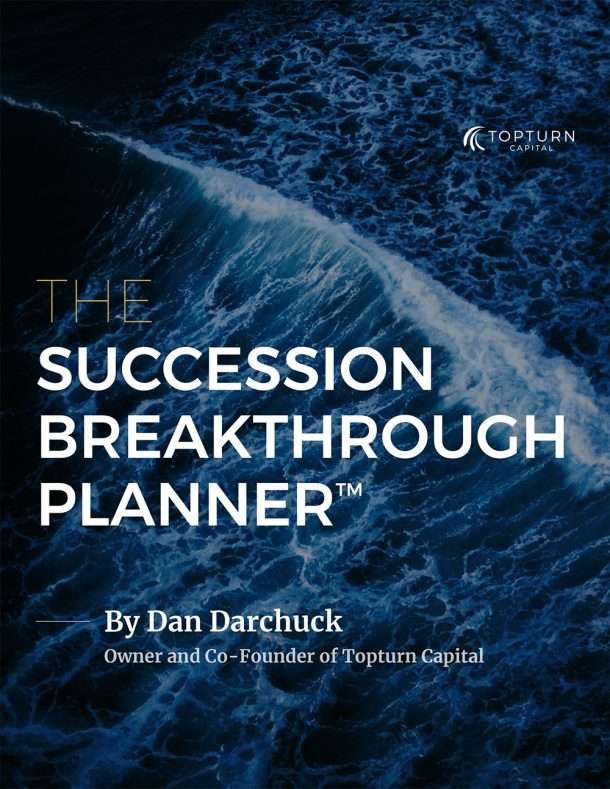Including the Wisdom of “Opposite George”
George Costanza, one of the supporting characters in the 90s hit show Seinfeld, made a lot of mistakes. In fact, a significant number of episodes were focused on his endless errors and miscues.
In one episode, George came to realize that if he chose to go against what his instinctual behavior would be in any situation, he might actually be successful. He called it being “opposite George”, and every time he chose against what felt normal to him, he achieved far more than ever before.
With that as a backdrop, as we close out 2020, I’d recommend that you consider the five strategies discussed below. You will notice that when it comes to tax planning for the 2020 year end, there are at least a couple of situations where it may work to your advantage to take a page from the book of Opposite George.
Of course, all strategies come with a caveat and these are no different. Each person’s individual income tax situation is different. So, if one of these piques your interest, make sure you speak with your tax professional before you make any moves.
Strategy #1: Take The Income Now
Every year before December 31st, your tax and investment professionals may typically be implementing moves that are intended to help reduce your taxes for the current year. Many of these involve deferring current year income taxes.
However, with a new administration entering the White House in 2021, we can expect some changes to federal income taxes (particularly for those with income in excess of $400,000 per year).
In 2020, the marginal tax rate for someone with that income could range from 35% to 37%. In 2021 and the years that follow, this marginal tax bracket may jump to as high as 39.6%.
If you’re earning an income like this, you may find that you will want to consider taking income in 2020 that you would have normally delayed into another year.
While some people don’t have the option to change how they receive their income, many business owners and investors may have the ability to choose the optimal time to receive bonuses, consulting income, capital gains, and even retirement plan distributions.
This move may seem counterintuitive, but hey, it’s been an unusual year.
Strategy #2: Harvest Those Gains
A well informed investment team often takes a look at your taxable portfolio before year end, to locate investments that have had a downturn in their value. Selling those now (and if attractive, buying them back 30 days or more later), is a tax strategy called harvesting losses. Those realized losses can be used to offset gains that may have been realized earlier in the year, often making for a slightly more tax-efficient portfolio.
However, as previously mentioned, it’s Opposite George time, thanks to the expected increase in federal income taxes. If your income for the year is lining up in just the right way, it may make sense to skip harvesting losses and pay tax on those gains, saving losses for another year when your taxes are higher.
A further twist on this idea might be to look for those positions in your portfolio where your cost basis is really low compared to the current value. Selling that position would trigger capital gains tax, which we don’t usually want to do, especially if we still like the investment and want to hold it. You could, in this strange year, sell it, trigger the gain, and buy it back (and, unlike with losses, you don’t have to wait the 30 days). This way, you’ve paid tax on the gain at 2020 rates, and bought the stock back at the current price, thereby increasing your cost basis. If you sell it in the future, you’ve already paid tax on a significant portion of the gain, at this year’s potentially lower rates.
Strategy #3: Charitable Gifting
The 2020 CARES Act, created to provide support to American families and businesses through the pandemic, has created opportunities for those making gifts of cash to qualified charities.
One provision of the act, allows you to deduct as much as 100% of your adjusted gross income on your cash gifts to qualified charities. This could, in theory, entirely eliminate your 2020 income tax liability.
While not everyone has the ability or desire to gift 100% of their income in a single year, there are many individuals who have made pledges to various charities to make gifts over periods of time. If you’re in that situation – and have the ability – the idea of accelerating those pledged gifts might be worth considering.
We also expect charitable trusts to make a bit of a comeback in 2021, simply because both income and capital gains taxes are expected to be higher. If giving is an important part of your life, keep an eye on philanthropic trusts as part of your long-term planning for 2021 and beyond.
Strategy #4: Required Minimum Distributions
If you are 70 ½ or older, and have been in the habit of taking your RMDs (required minimum distributions) from your retirement plans, and have not yet done so, you might want to reconsider.
2020’s RMDs have been waived as part of the government’s attempt to support Americans from all walks of life, especially seniors. If it makes sense in your specific income and tax planning situation, you may want to forego your distribution this year (however, as already mentioned, given the expected tax rate change, you may want to balance this idea against future obligations).
Note: If you have already taken your RMD this year, and wish you hadn’t, the deadline to return that draw to your account was August 31, 2020.
Strategy #5: Itemized Deductions
If you are currently taking advantage of reducing your income tax through itemized deductions, you are likely aware that the Pease Limitation – the limit on what you could claim – has been suspended through the Tax Cuts and Jobs Act… until 2025.
But, even though you may be making the most of this reprieve in 2020, there may be certain deductions you’ll want to consider deferring into 2021. Worth checking out.
In Short…
The opportunity to take advantage of year-end strategies is of course limited. There’s only so much time left in the calendar year. We know you’ll only have a short while to consider these options by the time this article reaches your inbox. However, if a few small tweaks can save you thousands of dollars this year, or or next, we think it’s worth the effort. Reducing your tax bill, and putting more of what you make to work for you, is still one of the fastest ways to change the tide of momentum to your favor.
Remember that the right decision is the one that is tailored to you and your specific situation. Always talk to your tax professional to be certain.
In closing I would like to add that, even during times of turmoil, if we give ourselves time to reflect, there is always much for which to be grateful. We count relationships with good people as chief among those.
All the best to you and yours this holiday season,
Dan Darchuck & Greg Stewart


